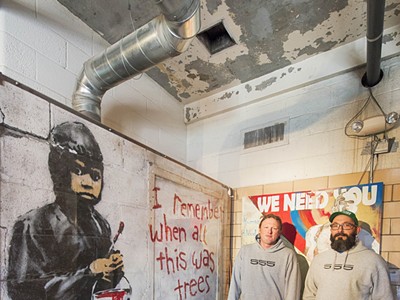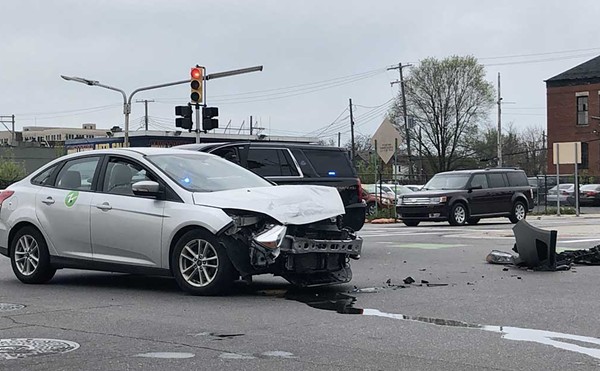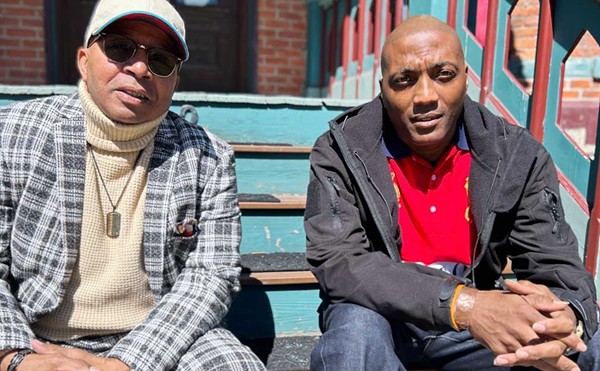“Every day, I walk my neighborhood near Seven Mile and Gratiot and pick up trash — Cheetos bags, blunt wrappers, liquor bottles,” says Charity Hicks, policy director for the East Michigan Environmental Action Council (EMEAC). “Every time I pick up litter, I think about our people throwing it down. I feel sorry for the environment, but I’m part of the solution. I can’t just complain and call for a solution; I have to be it. Some of my neighbors call me the crazy African lady picking up trash. I pick up trash in Detroit. I like to celebrate solutions. We need to celebrate, call attention to it, and connect the dots.”
Actually Hicks is something of a global trash picker. EMEAC is a local anchor organization for the Climate Justice Alliance. “The Climate Justice Alliance is a collaborative of over 35 community-based and movement support organizations uniting frontline communities to forge a scalable and socio-economically just transition away from unsustainable energy towards local living economies to address the root causes of climate change.”
Hicks travels internationally and has spoken at conferences in Tunisia, Brazil, Toronto, and elsewhere regarding environmental justice. She once presented a policy paper on Capitol Hill in Washington, D.C. That’s the way Hicks rolls. She’s a systemic thinker who sees connections where most of us don’t. She sees and thinks about environmental issues on so many different levels and from so many perspectives it can be dizzying.
But then she picks up trash near Seven and Gratiot. She walks and picks up trash.
“I’m always code-switching,” says Hicks. “When I show up on Fenkell, I’ve got to be Fenkell. One of my critical lessons is about audience. Where is the translation? Indigenous people talk seven generations into the future. When I talk on Fenkell, I’ve got to talk about this summer, the threat of being robbed, of being homeless, of being carjacked. Are you eating? Are you safe? How much does housing cost? I translate to bread-and-butter politics in Detroit. Some of that translation is race. I don’t talk polar bears. I talk the neighborhood. Who can pay for a house? Who has asthma, cancer? Who has diabetes? Why can’t we be healthy? Why don’t we have city services? Climate in Detroit is rooted in the lived experience of our people. It’s not tree-hugging or kayaking. It’s rent safety. Did your pipes just burst? Climate is the hundreds of people whose pipes burst because of the polar vortex. We need to caulk our windows. Climate is a minimum-wage issue; how are we going to pay for that?
“Climate in Detroit is rooted in the day-to-day. Not just the jet stream. I might touch on the jet stream, but when someone has a heart attack and dies shoveling snow, that’s climate. It goes from city services to our individual quality of life. I translate it.”
When you think systemically, the connections are everywhere and the entry points to the issue are numerous. Hicks has the clarity to avoid tunnel vision about any one thing. She knows the tunnel is part of a labyrinth that we all need to maneuver.
“We speak to the impacted,” says Hicks. “Injustice anywhere impacts all of us. It impacts Bloomfield Hills. … Detroit has 68 superfund cleanup sites, and more than 240 facilities releasing toxic chemicals. We’ve got to find a new way. Detroit has several cancer clusters, breast, bone uterine, brain, and lung cancers, metabolic imbalances, all of these are exacerbated by our environment.”
Climate change is already making its way around the world and changing the way we do things. There are other environmental factors, such as population growth, to take into account. The world population is booming and straining the systems we have in place for just about everything. The book and subsequent movie Hunger Games is not just some lark of a creative idea that someone came up with. Availability, delivery, and cost of food are very real concerns facing the world. Climate and ecology has everything to do with that — as well as other factors, including politics.
Traditional sources of energy are becoming scarce, and the forces that make riches from that are not letting go until the last drop of oil has been squeezed from the earth.
“We can no longer afford our energy footprint to come from nuclear, coal, or fracking,” says Hicks. “We’ve got technology — solar, wind, geothermal — that we can just transition to now.”
Fossil fuels aren’t just for driving cars, firing up factories, and keeping the house warm. They’re intimately woven into every aspect of our lives. Plastic is a byproduct of petroleum production. Food production takes a very different turn when the energy system changes. Many fertilizers are made from petroleum byproducts, and already food riots are becoming a reality as fossil fuels become scarce and prices go up. And some of what we see in the Ukraine is affected by that.
Hicks sees another opportunity to connect the dots in that.
“The food system is sexy now; everybody’s talking about food systems,” says Hicks. “We have a burgeoning urban agricultural system now — community food projects, farmers market credits, know your farmer, know your food, farm to cafeteria. … Food is our largest energy system in the world. Check how it intersects with energy. The largest use of water is agriculture. [The] largest fossil fuel use is agriculture. Food systems is a wonderful moment to leverage environmental resilience.
“As a systemic thinker, when I see food I also see energy, fossil fuels, water, pesticides, insecticides. Not just choice and the ability to pay. Farmers are literally champions right now.”
Urban agriculture isn’t just about finding something to do with all this vacant land around here. It’s not just fashion; it’s arming us for the future. It’s creating self-determination for Detroit as food scarcity roams across the planet. The issue isn’t just where the food is coming from. The issue is in knowing how to produce food, which will then translate into economic deliverance as those skills rise up the pecking order. It takes a while to see that when your neighbors start scratching around in the vacant lot next door.
The connections are numerous.
“Detroit’s energy grid is driven by the coal fired by DTE — some from Fermi, it’s dirty,” Hicks says. “We’re part of this blowing up of mountaintops in the coal country. Residential use of energy doesn’t even compare to industrial use.”
Climate change is creating climate refugees, and it’s not just in far-flung places near the Arctic Circle. I have relatives who fled New Orleans after Hurricane Katrina in 2005. They are climate refugees.
It’s a widely connected web around the world. But before it becomes too intimidating, take it in small bites. Look out your window. Picking up trash in the neighborhood and starting an organic garden are good starts to saving yourself and the world.
Follow @gumbogabe






